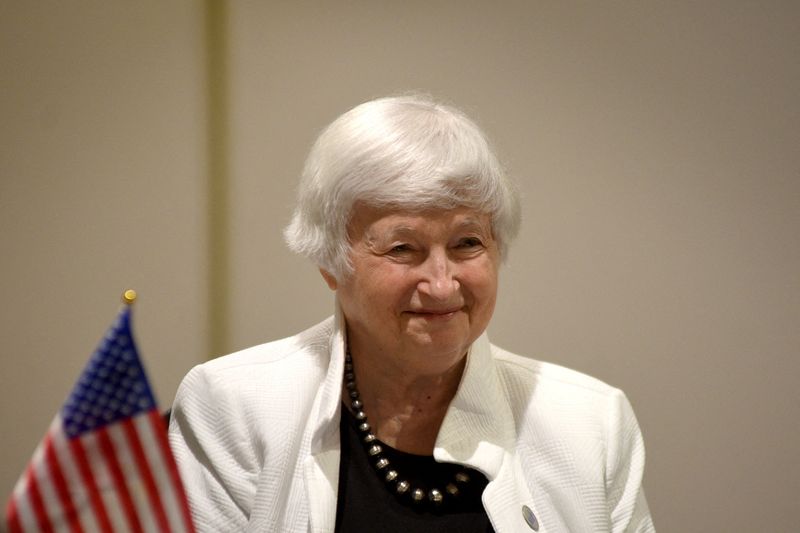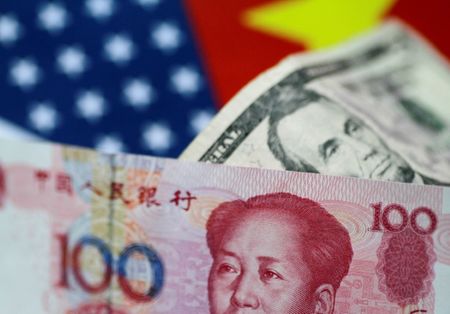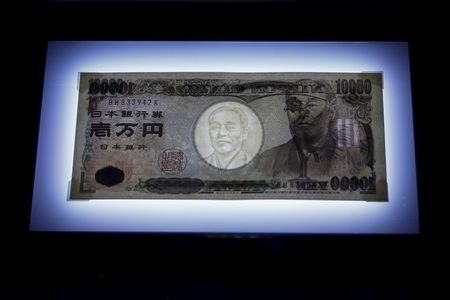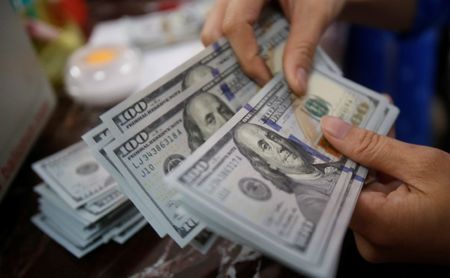The dollar index held near 16-month highs on Tuesday after Federal Reserve Chair Jerome Powell was picked for a second term, reinforcing market expectations that U.S. interest rates will rise in 2022.
The euro bounced off 16-month lows, meanwhile, helped by better-than-expected business growth in the region.
Currency markets have been mostly driven in recent months by market perceptions of the different paces at which global central banks reduce pandemic-era stimulus and raise rates.
Powell’s renomination supports the view that the Fed is likely to begin raising rates in mid-2022, after it winds down its bond purchase program.
“Markets perceived the outcome as marginally hawkish, and futures now firmed up expectations for a hike in June from having been skewed toward July,” currency analysts at Brown Brothers Harriman said in a note on Tuesday.
Data on Tuesday showed U.S. business activity slowed moderately in November amid labor shortages and raw material delays, contributing to prices continuing to soar halfway through the fourth quarter.
The dollar index was little changed on the day at 96.461, after reaching a 16-month high of 96.61 in overnight trading.
The euro gained 0.16% against the dollar to $1.1251, after earlier hitting a 16-month low of $1.1226.
The euro had tumbled on Monday as concerns grew over new COVID-19 restrictions in Europe, with Austria entering another full lockdown and Germany considering following suit.
Germany’s health minister has called for further restrictions on public spaces.
The euro has some short-term technical support in the $1.1240 – $1.1180 area, which were the highs reached in October and December 2019, Commerzbank technical analysts Karen Jones and Axel Rudolph said in a report on Tuesday. If it breaks below this area, however, it would likely fall to $1.1000, which is the 78.6% retracement of 2020’s move, they said.
The dollar hit a four-and-a-half year high against the Japanese yen of 115.08 yen.
The greenback hit a seven-week high of C$1.2744 against the Canadian dollar, which was hurt by a slide in oil prices, before dropping back to C$1.2682 as oil prices rebounded.
The United States said on Tuesday it would release millions of barrels of oil from strategic reserves in coordination with China, India, South Korea, Japan and Britain to try to cool prices after OPEC+ producers repeatedly ignored calls for more crude.
The kiwi dipped 0.13% to $0.6951 before the Reserve Bank of New Zealand (RBNZ) is expected to follow up its October rate hike with another 25-basis-point increase at its review on Wednesday.
Turkey’s lira dived 15% in its second-worst day ever after President Tayyip Erdogan defended recent sharp rate cuts and vowed to win his “economic war of independence” despite widespread criticism and pleas to reverse course.
In cryptocurrencies, bitcoin was trading at around $57,644, up 2.4% on the day. Earlier this month it had hit an all-time high of $69,000. Ethereum gained 6.41% to $4,357.




